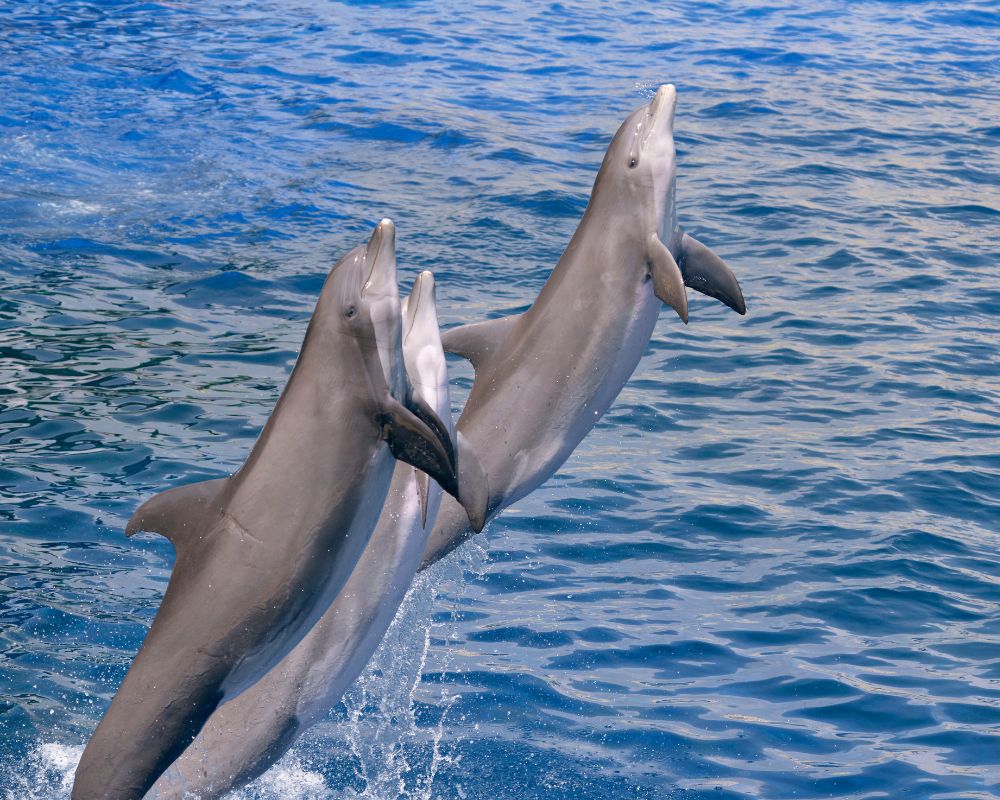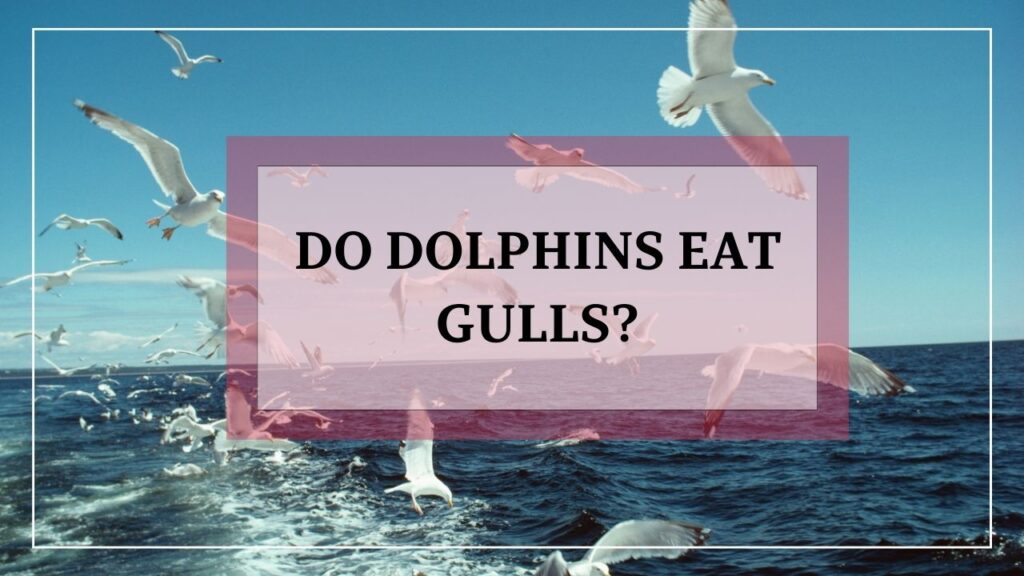Have you ever seen a dolphin hunting for food in the ocean? If you have, you may have wondered what these intelligent and playful creatures eat. Dolphins are known for their love of fish and squid, but do they ever prey on birds like gulls?
The answer is not as straightforward as you might think. In this blog post, we’ll explore the relationship between dolphins and gulls and find out whether dolphins really do eat these feathered creatures.
Do Dolphins Eat Gulls?

Yes, dolphins have been observed eating gulls on multiple occasions, indicating that they do include them as a part of their diet. While not a primary food source, gulls can provide important nutritional benefits to dolphins and are readily available in many coastal environments.
However, the impact of dolphin predation on gull populations is still not fully understood, and further research is needed to better understand the dynamics of this relationship.
Evidence Of Dolphins Feeding On Gulls
Have you ever wondered if dolphins eat gulls? Well, wonder no more! There is actually quite a bit of evidence that suggests that dolphins do indeed prey on these birds. Let’s take a closer look at some of the studies and observations that support this idea.
Over the years, researchers and marine enthusiasts have observed dolphins feeding on gulls in various locations around the world. While not a primary food source for dolphins, gulls are often found near the water’s surface and can be easy prey for these intelligent and agile predators.
Feeding Behavior And Techniques Of Dolphins
When it comes to catching gulls, dolphins have developed some pretty nifty techniques. They often use their powerful tails to create waves that disorient the birds and make them easier to catch. Dolphins can also use their echolocation abilities to detect the precise location of their prey and then swim up from beneath to catch them by surprise.
One interesting case of dolphins feeding on gulls occurred in the Moray Firth in Scotland. Researchers observed a group of bottlenose dolphins herding a flock of gulls toward the shore, where they were then able to catch and eat them. In another instance, a group of common dolphins was observed preying on a flock of gulls near the Azores.
While not a common sight, these observations provide compelling evidence that dolphins do indeed feed on gulls. So, the next time you see a dolphin jumping out of the water, just remember that it might be after more than just a fun time!
Why Do Dolphins Eat Gulls?
So, we now know that dolphins do indeed eat gulls. But why? What nutritional value do these birds provide for dolphins, and why do they choose to include them in their diet?
The Nutritional Value Of Gulls In Dolphins’ Diet
While dolphins are primarily known for their love of fish, they are actually quite opportunistic feeders and will consume a variety of prey items. Gulls, for example, are a rich source of protein and fat, both of which are important components of a dolphin’s diet.[1]
In fact, a study conducted in the Moray Firth in Scotland found that dolphins who consumed gulls had higher levels of fatty acids in their blubber than those who did not. This suggests that gulls may provide important nutritional benefits for dolphins, particularly in environments where other food sources are scarce.
The Impact Of Environmental Factors On Dolphins’ Dietary Choices
Of course, dolphins don’t just eat gulls because they’re tasty – their nutritional choices are also influenced by a variety of environmental factors. For example, the availability of prey items, as well as the abundance and distribution of certain species, can all play a role in shaping what dolphins eat.
In some areas, gulls may be one of the few readily available prey items for dolphins, particularly during certain times of the year. This can make them an essential component of the dolphins’ diet, even if they are not a primary food source.
It’s worth noting that gulls also play an important role in the marine ecosystem, particularly as scavengers. They can help to clean up dead animals and other organic matter, which in turn can help to reduce the spread of disease and maintain overall ecosystem health.
However, gulls are also highly adaptable and can thrive in a variety of environments, which means they are often abundant and readily available as a food source for predators like dolphins. This is particularly true in coastal environments, where gulls are often found near the water’s surface and can be easy prey for these agile hunters.
The potential risks to gulls from dolphin predation
So we’ve established that dolphins do eat gulls, but what impact does this have on the gull populations? Are they at risk of being preyed upon by these marine mammals?
The Impact Of Dolphin Predation On Gull Populations
While dolphins may occasionally feed on gulls, the overall impact on gull populations is likely to be minimal. This is because gulls are highly adaptable and have a range of food sources available to them. In addition, gulls have evolved a number of anti-predator strategies that help them avoid being caught by potential predators, including dolphins.
However, it’s worth noting that some gull species are more vulnerable to predation than others. For example, juvenile gulls may be more likely to fall victim to predators like dolphins than adult birds, due to their inexperience and lack of developed anti-predator behaviors.
Comparison Of The Threat Posed By Dolphins To Other Natural Predators Of Gulls
It’s also worth noting that dolphins are not the only natural predator of gulls. Other marine mammals, such as seals and sea lions, as well as large birds of prey like eagles and ospreys, also feed on gulls.
Compared to these other predators, the threat posed by dolphins to gull populations is relatively low. This is because dolphins tend to target individual birds, rather than large groups or colonies, which can cause significant damage to gull populations.
Despite the potential risks posed by predation, gulls play an important role in the marine ecosystem as scavengers and predators in their own right. They help to control populations of smaller prey species, such as fish and crustaceans, and can also act as important indicators of ecosystem health.
In addition, gulls are an important food source for a wide range of predators, including dolphins, which helps to support these higher-level predators and maintain a healthy balance in the food chain.
Conclusion
In conclusion, dolphins have been observed preying on gulls, which suggests that gulls are a potential food source for dolphins. While the nutritional value of gulls in the dolphin diet is not fully understood, environmental factors such as food availability and competition may influence their dietary choices.
Although dolphin predation on gulls may have potential risks to gull populations, the impact on the overall ecosystem is still not well understood. In comparison to other natural predators of gulls, the threat posed by dolphins may not be significant. However, the role of gulls in the food chain and their importance in the ecosystem should not be underestimated.

